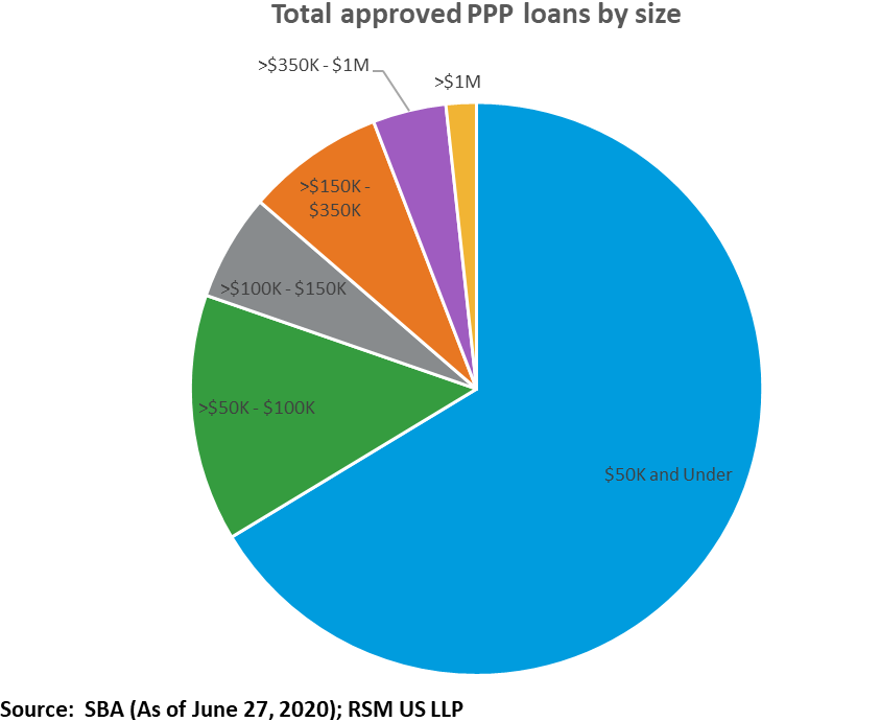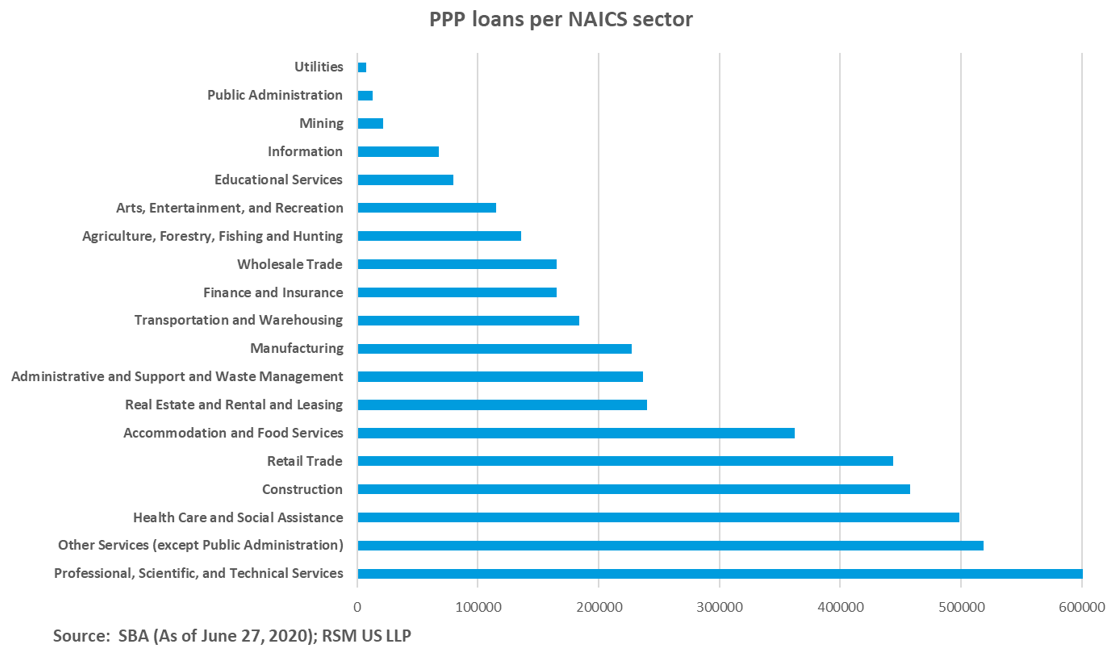
The $659 billion Paycheck Protection Program, which was scheduled to stop accepting new applications on Tuesday even though it had more than $134 billion left to distribute as of June 27, could now be extended through Aug. 8, after the Senate and the House approved the measure.
The program has been a central pillar of the $2.39 trillion CARES Act, designed to be a lifeline for many businesses struggling through the COVID-19 pandemic.
The bill now awaits the president’s signature.
Latest data
According to the latest data from the Treasury Department, almost 4.7 million loans have been issued by 5,458 lenders since the launch of the program. JP Morgan Chase was the largest issuer, with 268,860 loans, or 4.4% of the total count.
The overall average loan size is $108,000, with about 66.3% of the total loans issued with a loan size of $50,000 or less.

The latest report breaks this down by industry sector. The chart highlights the industries that have received PPP funding:

A closer look
Researchers from the National Bureau of Economic Research looked at the economic impact of the policies put in place to help with spending and employment.
In the June report, researchers used private sector data to look at a number of programs including the Paycheck Protection Program.
A few highlights from the research:
- The program had little material impact on employment at small businesses.
- The program did not restore the vast majority of jobs that were lost following COVID-19 shock.
- Loans were taken by firms that intended not to layoff many employees to begin with.
- Loans were not distributed to the industries that would experience job losses from COVID-19.
As lawmakers like Senators Tim Scott of South Carolina, Susan Collins of Maine and Marco Rubio of Florida, all Republicans, look to make modifications to existing programs or create future programs, the research from this report shows that business owners and employees are still struggling and will need additional help.
The takeaway
The extension of the loan application program under the Paycheck Protection Program will be well received by the business community as liquidity remains an important component of making it through this health crisis.
As future funding programs are being discussed, these must include an element of a targeted approach with an eye on the real economy.
For more information on how the coronavirus is affecting midsize businesses, please visit the RSM Coronavirus Resource Center.


